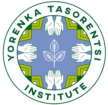Yorenka Tasorentsi
Planting seeds for the future
Yorenka Tasorentsi is an Indigenous-led Insitution that integrates traditional knowledge with modern techniques as a response to current planetary challenges.
We address ecological, cultural and social issues in an integrative manner to create a globally adaptable model for conscious and sustainable land stewardship.
Our work is focused on regenerating and preserving the Amazon Rainforest to guarantee a future where all living beings can live in harmony with nature.
NEWS
Areas of action
It is widely recognised that without the protection, conservation and restoration of tropical rainforests, it is not possible to achieve the Paris Agreement. Through our actions, the Yorenka Tasorentsi Institute is actively contributing to necessary steps articulated through the United Nations’ Sustainable Development Goals, which will ensure a liveable planet.
Recovery
of degraded
areas
Benki has planted manually over 2 million trees along with his team and community over the last 10 years, and Yorenka Tasorentsi’s goal is to plant 10 million trees within the next 10 years. Through tireless effort on the ground, coordination with partners all over the world and the use of specialized machinery, this ambitious plan will become a reality.
The purchase of degraded land in the Brazilian Amazon for restoration is a key element of Yorenka Tasorentsi’s strategy of protecting the forest. A total area of 1500 hectares have been purchased and is currently being reforested and preserved, guaranteeing the sustainable return of native plant and animal species of the Amazon rainforest.
Regenerative natural ecosystems
The institute is building an integrative ecosystem that encourages the production of local resources. Through fish farming, organic poultry farming, sustainable agriculture and apiculture, we can increase biodiversity and reduce the dependency on any one food source. Currently, the team is working towards building:
- 100 fish ponds, supported by nearby trees that will maintain the waters clean, and provide seeds, nuts and fruits that will fall into the ponds for the fish to eat
- 300 beehives for honey production and plant pollination
- 1000 chickens for soil revitalization, eggs and poultry
- 10 vegetable gardens for healthy food alternatives and medicinal plants
Wildlife
conservation
Due to disappearing forests and natural habitats, many local animal species are at risk, and they are a key component for creating a healthy, balanced ecosystem. We protect and breed wild animals to reintroduce them to the forest and revitalize their populations. The Yorenka Tasorentsi Institute provides space for these animals to live freely, serving as an example for the region as well as the rest of the world.
Animals being bred include : black monkey, black-bellied monkeys, dark-winged trumpeter, deer, lowland paca, macaws, parrots, red-knobbed curassow, tapir, tortoise, turtles, white-lipped peccary, wild boar, forest pig, yellow-spotted river turtle and more.
Sustainable social solutions
We will leverage the natural resources of the newly regenerated land to create business opportunities for the local community. This includes sustainable fruit pulp production, extracting oils to use in natural products, selling fish to the nearby city of Cruzeiro do Sul and building a local supermarket with fresh produce from the forest.
Animals being bred include : black monkey, black-bellied monkeys, dark-winged trumpeter, deer, lowland paca, macaws, parrots, red-knobbed curassow, tapir, tortoise, turtles, white-lipped peccary, wild boar, forest pig, yellow-spotted river turtle and more.
Education and Community
Yorenka Tasorentsi provides the space and structure for conferences, trainings, retreats and other kinds of community gatherings to share knowledge on indigenous and traditional practices as well as developed sustainable techniques. The center is open for retreats (including personalized natural treatments for those who have not found solutions through allopathic treatments), agroforestry, knowledge exchange and other meetings and workshops.
Traditional knowledge & cultural hertiage
The project, Iraporo Pawa, is a “living museum” that will hold a collection of records of indigenous traditional knowledge and cultural heritage through different media platforms. The museum will have three basic functions: conservation, research and communication including the following areas: native plant species & animals, objects (clothes, ornaments, instruments, tools), music, stories and languages (audio records, notebooks, videos).

